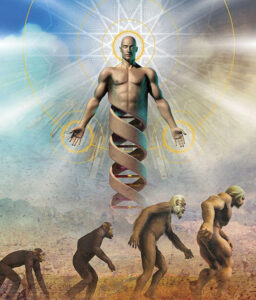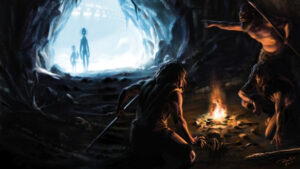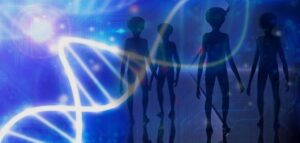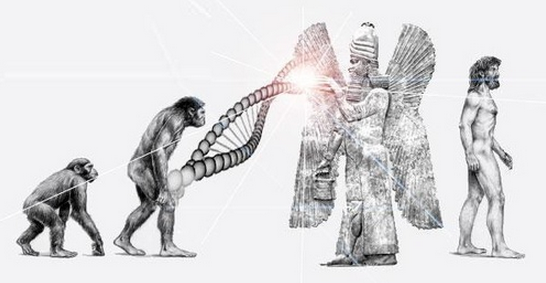Article originally written and published by www.collective-evolution.com
Evolution is something scientists have observed at several different levels in nature, and when it comes to human ancestry, they’ve been able to collect bits and pieces of the giant puzzle that is human evolution.
It’s important to remember that there is still much we do not know, and the evolutionary tree is far from understood, let alone complete.We do know that some form of evolution (scientifically speaking) has occurred on various levels, but there are still many missing links to our evolutionary journey, and new discoveries made every year are continuing to re-write what we previously believed to be true.
A New Species Discovered?

One great example is a discovery that was made just over a year ago where researchers found what looks to be an entirely new species of hominin that is currently unknown to modern day science. The discovery was made in a Siberian cave.
A DNA analysis of the subject’s genome detected traces of what is known as a “Denisovan,” considered to be the mysterious cousin of the Neanderthals.
The alarming part is the fact that the genome also contains odd bits of DNA which seem to come from a completely unknown, unidentifiable group of ‘people.’
The genome from a Neanderthal was also analyzed from the excavation, and the results suggest that interbreeding occurred among members of multiple ancient human-like groups in Europe and Asia more than 30,000 years ago, “including an as yet unknown human ancestor from Asia.”
“What it begins to suggest is that we’re looking at a Lord of the Rings type world – that there were many hominid populations.” – (1) Mark Thomas, evolutionary geneticist at University College London
 Again, Neanderthal and Denisovans are believed to have bred with anatomically modern humans, thus contributing to the genetic diversity of many people today. That being said, this new discovery suggests that our genetic diversity is far more complex, and again, includes a being (or beings) that has yet to be identified.
Again, Neanderthal and Denisovans are believed to have bred with anatomically modern humans, thus contributing to the genetic diversity of many people today. That being said, this new discovery suggests that our genetic diversity is far more complex, and again, includes a being (or beings) that has yet to be identified.
“The best explanation is that the Denisovans interbred with an unidentified species, and picked up some of their DNA. Denisovans harbour ancestry from an unknown archaic population, unrelated to Neanderthals.” (2) – David Reich of Harvard Medical School
Who Were These People?
The question now becomes, who were these mystery people that some of our ancestors (like the Denisovans) were interbreeding with? Could they have been a similar group? Could they have been a completely separate, entirely new species?
 This finding is one small example of the many mysteries and questions that remain regarding human evolution. There is also the anomaly regarding evidence found which suggests intelligent, extremely advanced (more so than we are today) ancient human civilizations might have existed in our ancient past, from millions of years ago all the way up to recent history.[3] Where does all that fit into the equation? That is, however, a completely separate topic for a separate article.
This finding is one small example of the many mysteries and questions that remain regarding human evolution. There is also the anomaly regarding evidence found which suggests intelligent, extremely advanced (more so than we are today) ancient human civilizations might have existed in our ancient past, from millions of years ago all the way up to recent history.[3] Where does all that fit into the equation? That is, however, a completely separate topic for a separate article.
The amount we do know is but a tiny drop in the ocean, full of unknowns that have yet to be discovered, that will one day shed light on the mystery of human origin.
Sources:
(1) http://www.nature.com/news/mystery-humans-spiced-up-ancients-sex-lives-1.14196

